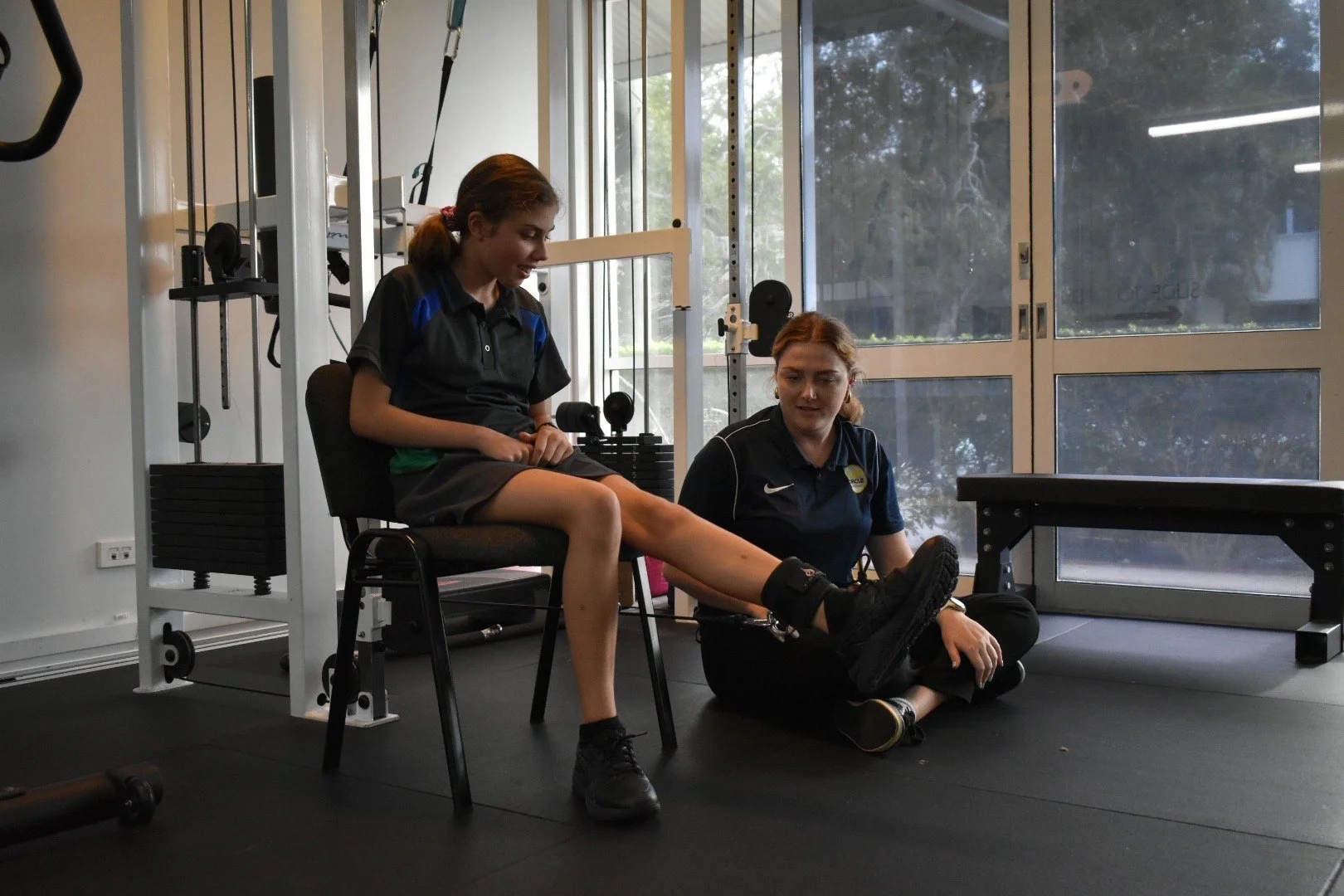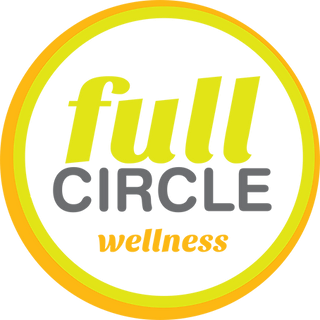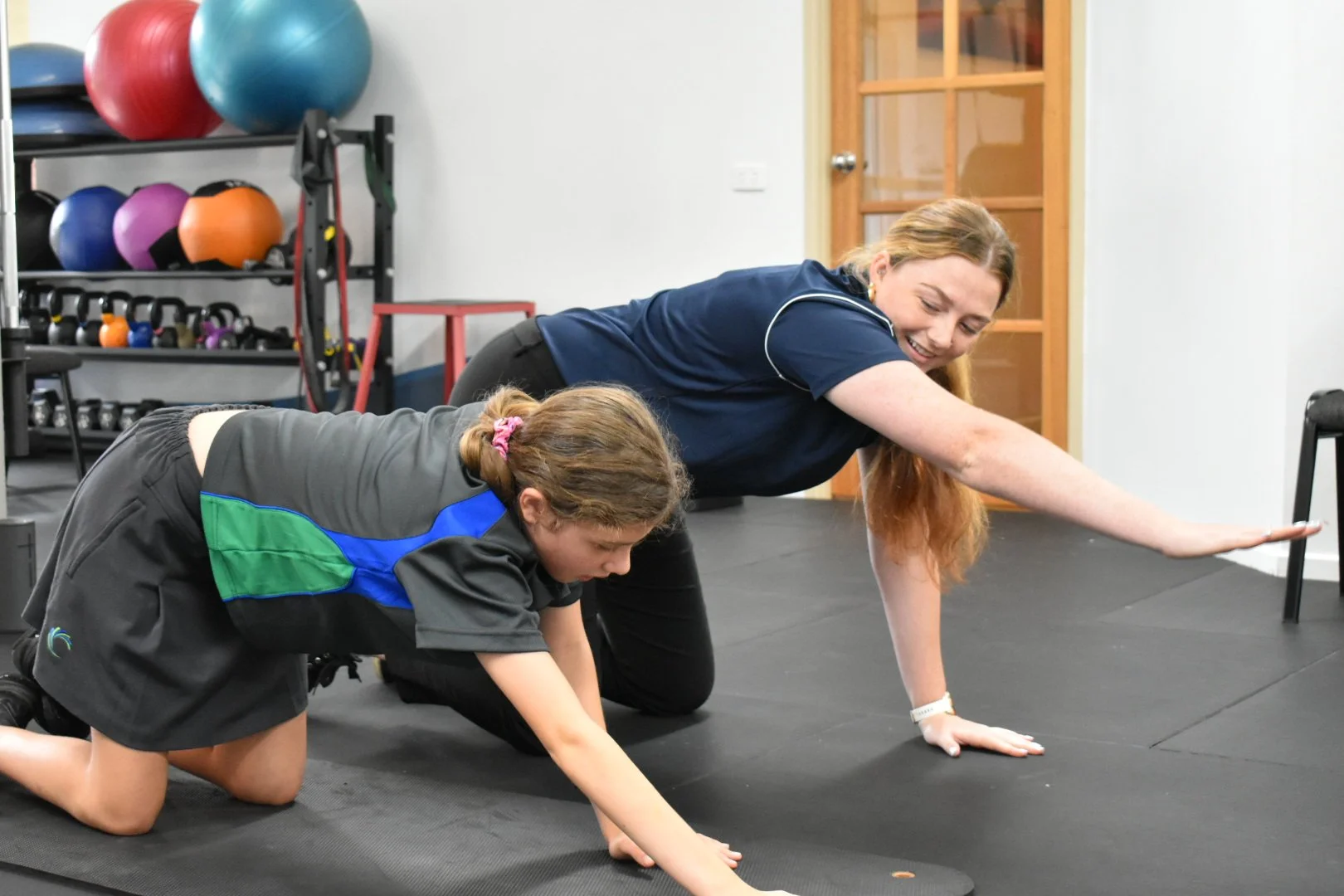
NDIS EXERCISE PHYSIOLOGY
NDIS EXERCISE PHYSIOLOGIST
The National Disability Insurance Scheme (NDIS) is required by law to provide 'reasonable and necessary' supports to help eligible people with a disability live more independently. The scheme is designed for people aged under 65. These supports may include:
education
employment
social participation
independence
living arrangements; and
health and wellbeing
Many allied health services, including exercise physiology and dietetics are classified as accredited services within the NDIS system. Full Circle Wellness is proudly registered as an approved provider within the state of Queensland and all our staff have undertaken specialist training to support and understand the unique needs of our clients who are living with a disability.
All disabilities and conditions approved through the NDIS can receive our services if it is deemed reasonable and necessary, including:
Autism and learning disorders
Amputation
Brain Injury
Cognitive disabilities
Cerebral palsy
Down Syndrome
Learning disabilities
Intellectual disabilities
Multiple Sclerosis
Muscular Dystrophy
Neurological: Parkinsons’ Disease, epilepsy, etc
Paraplegia
Vision and hearing impairments
Stroke
THE NDIS REFERRAL PATHWAY
Contact Full Circle Wellness with the new referral.
Discussion of clients’ needs and appropriateness for service with coordinator/referrer.
Contact with the client and associated parties.
Design services agreement and intended care plan. This is signed by the participant and practitioner and provided to the coordinator.
Communication with organisation, carers, allied health, client GP and specialists about intended care plan.
Implementation of therapy.
Ongoing communication throughout with all associated parties.
THE BENEFITS OF EXERCISE PHYSIOLOGY AND NDIS
Our allied health services can provide the following benefits, via specific appropriate and evidence based practice:
Reduce the risk of, manage and mitigate chronic disease.
Improve general, cardiac, respiratory, metabolic and psychological function.
Improve movement patterns via strength, stability and mobility intervention.
Improve functional capacity.
Improve quality of life and activities of daily living.
Increase independence.
Exercise physiology can be provided via Category 12 of your NDIS package. Package 12 - Improved Health and Wellbeing - Disability impacts on the ability to perform daily activities (ADL).
Depending on the management structure of your package you may also have the potential to consult with an exercise physiologist via other avenues. (core funding)
Services are available for self-managed, plan-managed or agency managed packages.
We are able to deliver our services via home, clinic, gym or community modalities and at varying intervals in Brisbane, the Sunshine Coast, Noosa District, Tin Can Bay and Gympie.
Would like more information on how to utilise an exercise physiologist or dietitian through your NDIS package? Please feel free to contact our office on 07 5456 1599 to discuss our services and how they be applicable for your situation.
The focus points of exercise physiology and the disability sector include:
Emphasis on functional reconditioning exercises.
General rehabilitation for musculoskeletal, neurological and physiological conditions.
Specific therapy for a range of chronic, acute and sub acute conditions.
Improving activities of daily living.
Home base and individualised consults.
Ability to also perform group and class based therapy for lower costs and centres and facilities.
Focus on functional conditioning, balance and falls prevention exercises
Education on safety and lifestyle interventions.
General exercise intervention to improve function throughout the home and community in order to maintain ones quality of life (QOL).

DIETETICS AND NDIS
Our Accredited Practicing Dietitian is available under NDIS in the Gympie, Tin Can Bay and Noosa Districts.
WHAT IS THE NATIONAL DISABILITY INSURANCE SCHEME (NDIS)?
The National Disability Insurance Scheme (NDIS) is required by law to provide 'reasonable and necessary supports' to help eligible people with a disability live more independently. The scheme is designed for people aged under 65.
The NDIS has two arms. There are individual support packages available to around 475,000 people with high levels of assessed needs. There is also the more recently introduced Information Linkages and Capacity Building (ILC) program, which aims to assist all 4.3 million Australians aged 16-65 with a disability. This promotes inclusion of all people with disability into their communities by helping individuals and by building the community’s capacity to welcome them. For many people, it will be the first time they receive the disability support they require.
The NDIS can provide all people with a disability with relevant information and connections to services in their communities, including doctors, sporting clubs, support groups, libraries and schools. It will also provide information about what support is provided by each state and territory government.
WHAT MAKES A SUPPORT 'REASONABLE AND NECESSARY'?
It is contrary to the NDIS philosophy to have a formula that dictates reasonable and necessary supports for a particular type and severity of disability – nor is it practical. Two people with the same type and severity of disability may have different goals and so different support needs. One person may want to pursue education and employment, while another may want more community activities.
In order to be considered 'reasonable and necessary', a support or service:
must be related to a participant’s disability;
must not include day-to-day living costs that are unrelated to your disability support needs, such as groceries;
should represent value for money;
must be likely to be effective and work for the participant; and
should take into account support given to you by other government services, your family, carers, networks and the community.
A participant's reasonable and necessary support takes into account any informal supports already available to the individual, such as informal arrangements that are part of family life or natural connections with friends and community services, as well as other formal supports, such as health and education.
These supports will help participants to:
pursue their goals, objectives and aspirations;
increase their independence;
increase community and workplace participation; and
develop their capacity to actively take part in the community
Providers are an important part of the NDIS, delivering a product or service support to a participant. Participants can choose who they wish to work with, and their NDIS plan identifies what outcomes they wish to achieve, and the supports they will use. For more information visit Australian Department of Human Services - NDIS.

